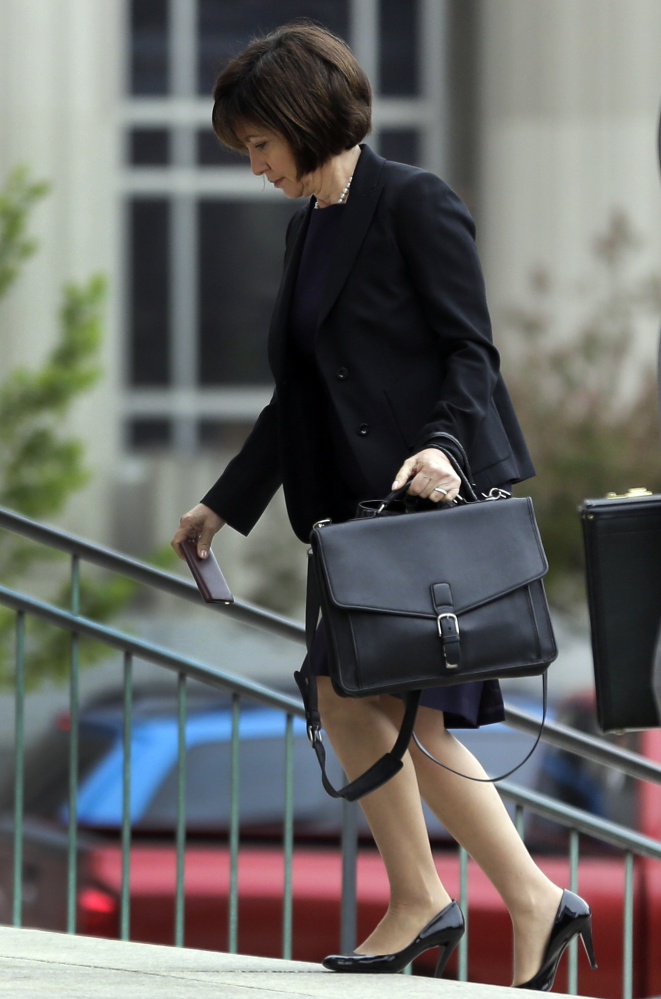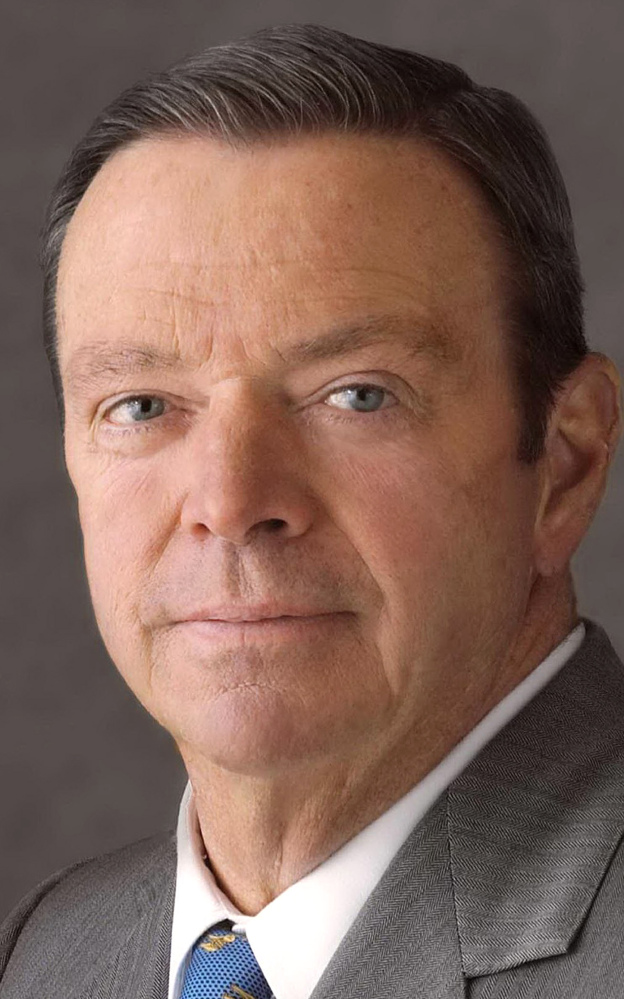ST. LOUIS — From male-only corporate jets to guys’ golf and hunting trips, Francine Katz says her time in the Anheuser-Busch executive suite was rife with exclusion and outright discrimination. But it wasn’t until the King of Beers’ 2008 sale to Belgian brewer InBev that she says she realized the boys’ club atmosphere was costing her millions.
In a 20-year career that saw her rise from a young corporate lawyer to the beer maker’s top female executive, Katz became the face of her hometown employer, defending the maker of Budweiser and Bud Light from regulators and anti-alcohol crusaders.
Now she’s accusing Anheuser-Busch of sex discrimination, arguing in a lawsuit that reached trial this week that top male executives – including former CEOs August Busch III and his son, August Busch IV – purposely paid her less because she’s a woman.
“This was a company run by men who were unaccustomed with working with women at high levels,” Katz’s attorney, Mary Anne Sedey, told the jury of seven women and five men in opening arguments of a trial expected to last several weeks.
Counting bonuses and stock options, Katz earned more than $1 million annually after her 2002 promotion to vice president of communications and consumer affairs and elevation to the company’s influential strategy committee. Her predecessor earned four times that amount in his final year, Katz’s lawyer said.
Katz said August Busch III called her “ungrateful” after she raised complaints about the disparity.
“Make no mistake about it. Francine Katz earned a lot of money at Anheuser-Busch,” Sedey said. “But like so many women in this country, Francine Katz was significantly underpaid.”
Her attorney said Katz deserves at least $9.4 million she was entitled to from 2002 to 2008, plus punitive damages.
In 2008, her final year with the company, Katz reported more than $14 million in income on her federal tax returns, an amount that includes stock options she cashed in.
Lawyers for Anheuser-Busch counter that Katz’s salary, benefits and bonuses compared favorably to those in similar positions at Coca-Cola, Proctor & Gamble and other large U.S. corporations. They suggested that her primary duty involved public relations, while Jacob had far more substantive responsibilities, including as August Busch III’s trusted confidant.
“Francine Katz was paid based on her job, not her gender,” said Anheuser-Busch attorney Jim Bennett. “There was a fair process used, a rigorous process used.”
On Friday afternoon, August Busch III took the stand, verbally sparring with a member of Katz’s legal team as he recounted the company’s methods for paying top executives. His son and namesake, who led the company for two years before its sale, is also expected to testify. Their presence is sure to draw attention in St. Louis, where numerous buildings – including the St. Louis Cardinals’ stadium – bear the family name.
The elder Busch, 76, succeeded his father as CEO in 1975 at 38 in a coup initially resisted by August “Gussie” Busch Jr. August Busch III remained in charge for nearly three decades before his 2002 retirement and stayed on as chairman of its board of directors through 2006. Under his watch, the family business founded by German immigrants in 1876 became the country’s largest brewer.
Colleagues and underlings said Busch ruled with a hair-trigger temper. Katz testified that Jacob told her Busch avoided discussing a contentious environmental issue with her because he was afraid Katz would cry.
August Busch IV, 49, was better known for his legal missteps and love of nightlife before his ascendancy to the boardroom. As a sophomore at the University of Arizona, Busch caused a 1983 car accident that led to the death of his 22-year-old passenger, waitress Michele Frederick. A seven-month police investigation of a possible involuntary manslaughter concluded without charges being filed.
In 2010, the younger Busch re-entered the spotlight when his 27-year-old girlfriend died of an accidental drug overdose at his mansion. He later settled a wrongful-death lawsuit filed by Adrienne Martin’s family for $1.75 million.
Katz testified that Busch and another company executive forced her to fly on a separate corporate plane when the group traveled to Ohio for meetings with government officials. On other occasions, she was excluded from corporate golf tournaments and other functions, she said.
“I felt invisible,” Katz said.
Send questions/comments to the editors.




Success. Please wait for the page to reload. If the page does not reload within 5 seconds, please refresh the page.
Enter your email and password to access comments.
Hi, to comment on stories you must . This profile is in addition to your subscription and website login.
Already have a commenting profile? .
Invalid username/password.
Please check your email to confirm and complete your registration.
Only subscribers are eligible to post comments. Please subscribe or login first for digital access. Here’s why.
Use the form below to reset your password. When you've submitted your account email, we will send an email with a reset code.